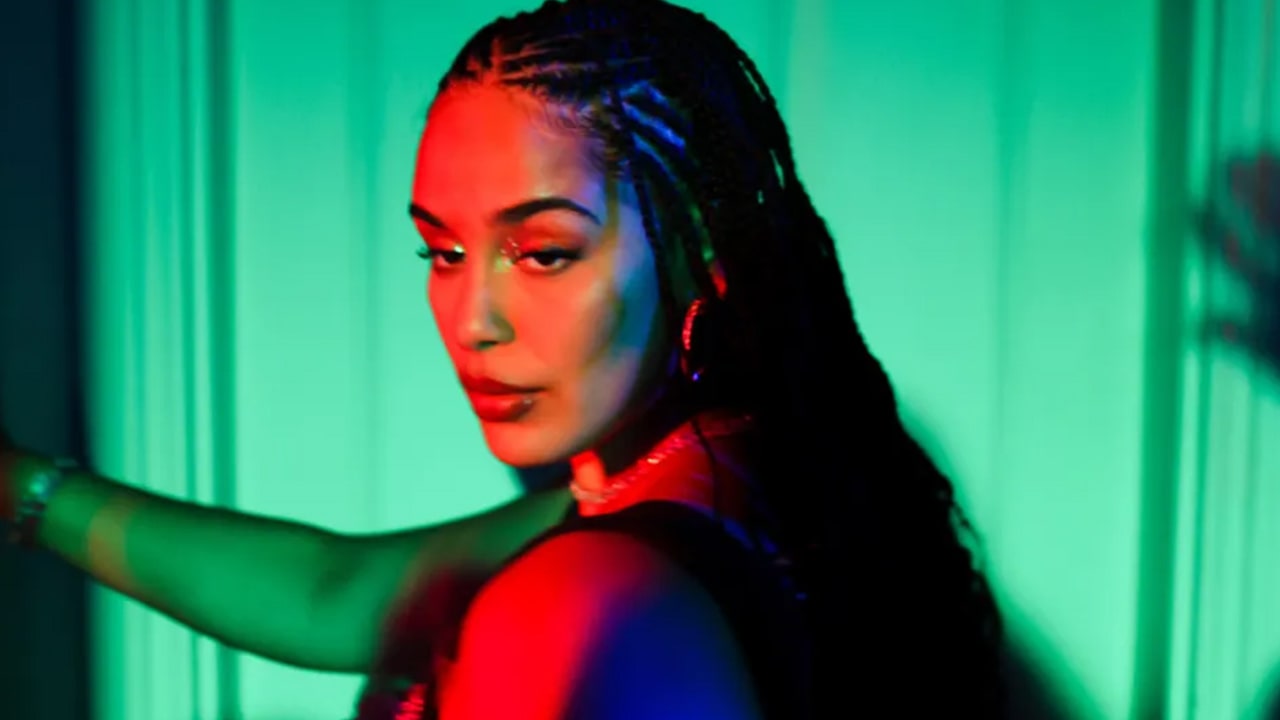All that Jorja Smith likes to do is write and sing — which makes separating herself from her career “a bit tricky” sometimes. “I’ll have days where I’m like, ‘Oh, my God, I wish I gave myself a different name because I need to switch Jorja Smith off,’ ” she says. “I don’t want to be Jorja Smith all of the time.”

Struggling to find balance not only speaks to her Gemini zodiac sign, says the 26-year-old artist, but is also at the core of her highly anticipated second album, Falling or Flying, out Sept. 29 on her longtime independent label, FAMM. “I don’t really have an in between. I’m either happy or sad, obsessed or completely unfocused, up or down,” she says. “I feel like I’m flying in my career, and then other times, I feel like I’m falling because the pressure can feel [like] too much.”
At 18, Smith left her hometown of Walsall, England, and traveled two-and-a-half hours south to London in order to pursue music full time. Her secondary school yearbook named her most likely to become famous — and she quickly ascended to become one of the United Kingdom’s brightest stars. In 2016, Smith uploaded her socially conscious debut single, “Blue Lights,” to SoundCloud, and it garnered nearly half a million plays in one month. The song eventually appeared on her 2018 critically acclaimed debut album, Lost & Found, which boasted slow-burning songs that blended R&B, reggae, hip-hop, jazz and neo-soul production with a songwriting approach inspired by Amy Winehouse. All the while, Smith earned co-signs from Drake, Kendrick Lamar and Stormzy, as well as acclaim in the form of a 2018 BRITs Critics’ Choice Award and a 2019 Grammy nod for best new artist.
But fulfilling her yearbook prophecy had a disorienting effect on Smith, who became famous in her early 20s. After tiding fans over with the 2021 EP Be Right Back, she moved home to Walsall at the beginning of 2023. “I went back when I finally decided I’ve had enough of London … It’s a bit overwhelming sometimes,” she says with a sigh. “I moved back and I feel a lot more balanced. I feel more myself now.”
On Falling or Flying, Smith soars over sprightly tracks that experiment with acoustic indie-rock production, syncopated basslines and retro synth chords. She enlisted U.K. jungle DJ-producer Nia Archives to remix the album’s second single, “Little Things,” which captured a flirty, feverish energy quintessential for clubbing in its original form. But some songs demand the coziness of a jazz club, where Smith’s lithe, velvety vocals can fill the space on their own — and quiet those around her. While Lost & Found comprised teenage love songs Smith had written when she was 16, Falling or Flying finds the singer stepping “into womanhood” and being more sure of herself than ever before. As she sings on “Backwards,” “I stand here and I look down on myself and I am so proud.” Meanwhile, on tracks like “Broken Is the Man” and “Try Me,” she challenges past lovers and harsh critics.
Walsall production duo DameDame* — Smith has known one of its members since she was 15 — was responsible for most of Falling or Flying, another sign that returning to her roots better served her music. “We laughed, ate food, sang, cried, jammed some more,” she says. “It wasn’t like, ‘I need to make the album uptempo.’ It was just, ‘Let’s mess around, have fun and see what happens.’ ”
Smith teases that she’ll take Falling or Flying on the road for her first headlining run in five years. “That’s all I want to do,” she says, beaming. “That’s where I feel at home. In Walsall and onstage is where I feel like, ‘OK, I can just be me.’ ”






